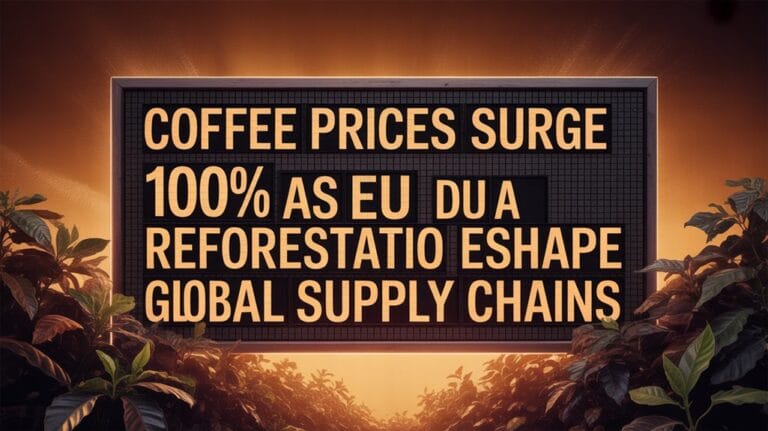As deadlines for the European Union’s deforestation-free regulation (EUDR) approach, coffee businesses face shifting timelines and mounting pressure. Large companies must comply by December 30, 2025—a one-year delay—while small and micro-businesses get until mid-2026 or late 2026.
Though the extension aims to help firms prepare without lowering standards, the EUDR impact raises compliance costs that could strain supply chains. Smaller farmers, who supply most global coffee, now have an extra year to adopt geolocation tech and traceability systems, but many lack the funds or infrastructure to meet requirements quickly. Without support, they risk losing access to the EU, the world’s top coffee market. This global coffee market is characterized by diverse adaptations to local cultures and practices, highlighting the importance of equitable access for all producers. The cultivation of Arabica coffee involves careful management of factors such as altitude and temperature to ensure optimal quality.
The EUDR extension allows small coffee farmers more time, but steep compliance costs for tech and traceability still risk cutting off EU market access without aid.
The EUDR demands exact locations of coffee farms through mapping tools, but smallholders in developing regions often can’t afford the tech or training. Producers must also submit mandatory Due Diligence Statements, verifying their beans weren’t sourced from land deforested after 2020. Meeting these rules may cost thousands per farm—a burden for producers already squeezed by climate crises and rising fertilizer prices.
Experts warn this could push many out of the EU market, disrupting supply chains and favoring big companies that control their own farms and processing. Countries like Brazil and Costa Rica, with advanced traceability systems, stand to gain market share, while others may fall behind.
Higher compliance costs could also drive up coffee prices. European buyers, facing penalties of up to 4% of revenue for non-compliance, are cutting inventories or sourcing from fewer, certified suppliers. This has reduced stockpiles in Europe, pushing prices to near-record highs. The Arabica price surge, exceeding 100% in the past year, has compounded financial strains across the industry.
Some businesses are stockpiling beans before deadlines, worsening supply swings. Over time, the EUDR may split the market into compliant and non-compliant segments, accelerating a shift toward vertically integrated companies that control every step from farm to shelf.
Small farmers, already facing thin profits, fear being priced out. Without aid for tech upgrades or data management, many may abandon EU markets or sell to larger competitors.
The regulation’s goal—to fight deforestation—is clear, but its rollout risks sidelining the vulnerable players it doesn’t empower to adapt. As deadlines inch closer, the coffee industry faces a race to balance sustainability with survival.

